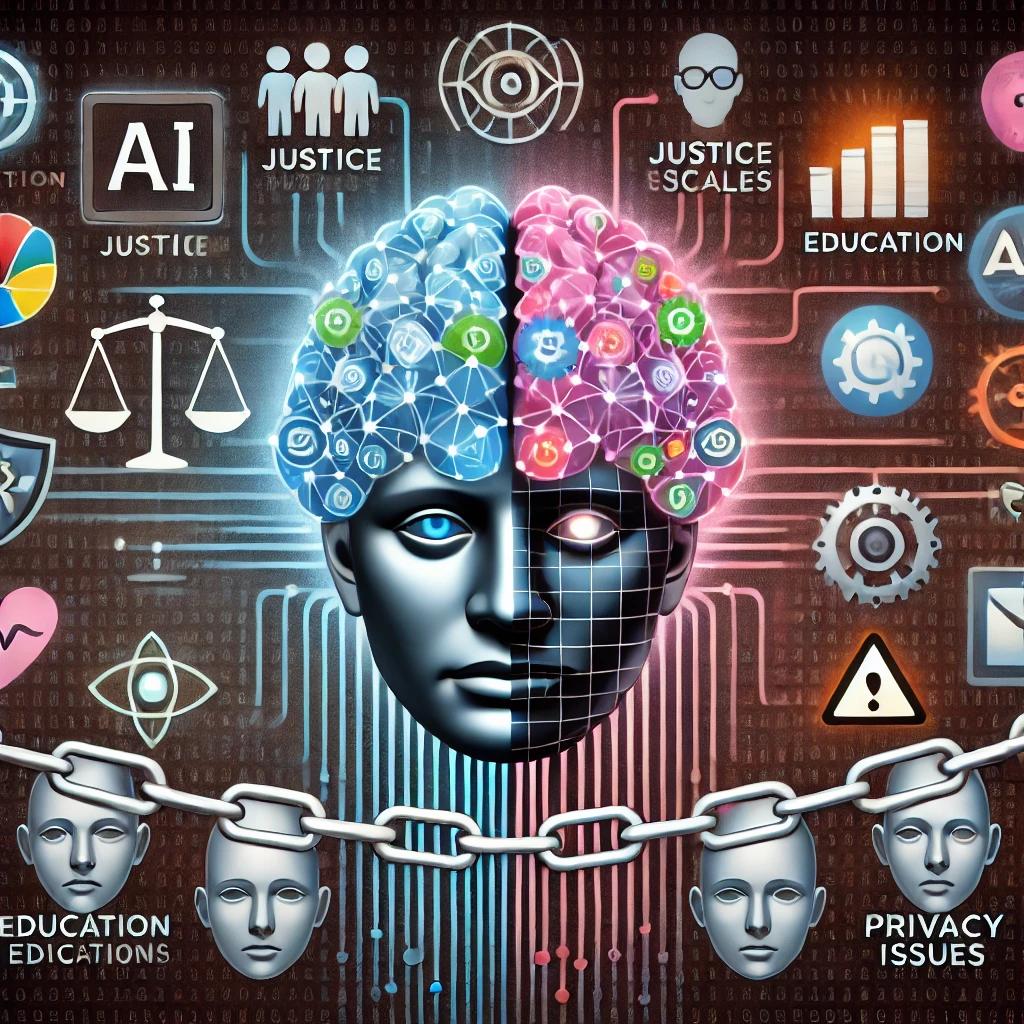AI and Privacy Rights: Balancing Innovation and Individual Freedom
Artificial intelligence (AI) thrives on data, which fuels its ability to make decisions, predictions, and recommendations. However, the collection and use of vast amounts of personal data raise serious concerns about privacy rights. As AI systems become more embedded in daily life—through social media, smart devices, and surveillance technologies—the potential for violations of privacy increases. The challenge is finding a balance between technological advancement and the protection of individual freedoms.

- The Rise of AI-Driven Data Collection
AI systems rely on immense datasets to function effectively, and much of this data is personal. From our social media activities to our online purchases, AI algorithms analyze user data to improve services, make personalized recommendations, and optimize user experiences. However, this access to personal data without explicit consent or knowledge has triggered global concerns about privacy breaches.
Example: Smart Devices and Surveillance in Homes
Devices like Amazon’s Alexa, Google Home, and other AI-powered smart assistants are constantly collecting information from users. These devices listen to conversations, track behaviors, and store data to enhance their functions. In some cases, they have unintentionally recorded private conversations or shared data with third parties without users being fully aware. A 2019 study revealed that workers in certain tech companies were listening to recorded conversations from these devices for quality control purposes, raising serious concerns about consent and data handling .
While these devices are intended to simplify life, their integration into homes can blur the lines between convenience and surveillance, leading to potential violations of the right to privacy.
- Data Protection Regulations
In response to the privacy threats posed by AI technologies, governments around the world have introduced regulatory measures to protect citizens. The most significant and comprehensive of these is the European Union’s General Data Protection Regulation (GDPR). The GDPR, implemented in 2018, aims to give individuals more control over their personal data by requiring companies to obtain explicit consent for data collection and processing, and by allowing users to request the deletion of their data under certain conditions .
Under the GDPR, AI systems are required to operate transparently, ensuring that users are informed about how their data is being used and processed. This regulation sets a global standard for privacy protection, yet it also highlights the complexities of regulating AI in an increasingly data-driven world.
Example: Facial Recognition and GDPR Challenges
Facial recognition technology is one of the most controversial AI applications when it comes to privacy. Governments, particularly in the EU, have debated whether the use of this technology should be restricted due to its invasive nature. In 2020, the UK’s Information Commissioner’s Office (ICO) found that the use of facial recognition in public spaces by law enforcement agencies raised significant privacy concerns, citing violations of GDPR principles .
Facial recognition has the potential to track individuals without their knowledge or consent, creating an environment where mass surveillance is normalized. The ethical debate centers on whether the benefits of enhanced security justify the sacrifice of individual privacy rights.
- AI and Corporate Data Collection
Beyond government regulation, many tech companies use AI algorithms to gather and analyze consumer data. Social media platforms, online retailers, and even mobile apps collect behavioral data to target ads, recommend products, and optimize user engagement. However, when companies overreach, this can lead to invasive surveillance and exploitation of personal information for profit.
Example: Cambridge Analytica Scandal
A high-profile case illustrating the dangers of corporate data misuse involved the political consulting firm Cambridge Analytica. In 2018, it was revealed that the firm had harvested personal data from millions of Facebook users without their consent. The data was then used to influence voters during political campaigns, including the 2016 U.S. presidential election. AI-powered analytics were used to create psychographic profiles of users and deliver targeted political ads .
This scandal highlighted how AI could be used to manipulate public opinion by exploiting personal data, thus jeopardizing the right to privacy and democratic processes.
- The Future of Privacy in an AI-Driven World
As AI continues to evolve, its impact on privacy will likely intensify. While regulations like GDPR represent significant progress, the fast pace of technological development often outstrips legal frameworks. Many experts argue for stronger, global data protection standards that can address the unique challenges AI presents.
Some solutions focus on the ethical design of AI systems. Researchers advocate for “privacy by design” principles, where privacy safeguards are built into AI algorithms from the outset. Additionally, techniques like differential privacy and federated learning allow AI to function effectively while minimizing the need for large-scale data collection.
- Conclusion: Safeguarding Privacy in the Age of AI
AI offers unprecedented benefits, but its potential to infringe on privacy cannot be ignored. Striking a balance between technological innovation and individual rights is critical for ensuring that AI serves humanity rather than undermines its freedoms. By advocating for stronger regulations, ethical design, and transparent data practices, we can protect privacy while embracing the benefits of AI.
References:
Acquisti, Alessandro, et al. “Privacy and Human Behavior in the Age of Information.” Science, vol. 347, no. 6221, 2015, pp. 509–514.
European Union. “Regulation (EU) 2016/679 of the European Parliament and of the Council of 27 April 2016 on the Protection of Natural Persons with Regard to the Processing of Personal Data (General Data Protection Regulation).” Official Journal of the European Union, 2016.
Cadwalladr, Carole, and Emma Graham-Harrison. “Revealed: 50 Million Facebook Profiles Harvested for Cambridge Analytica in Major Data Breach.” The Guardian, 17 Mar. 2018.
Vincent, James. “UK Police’s Use of Facial Recognition Violated Human Rights, Court Rules.” The Verge, 11 Aug. 2020.
0 Comments